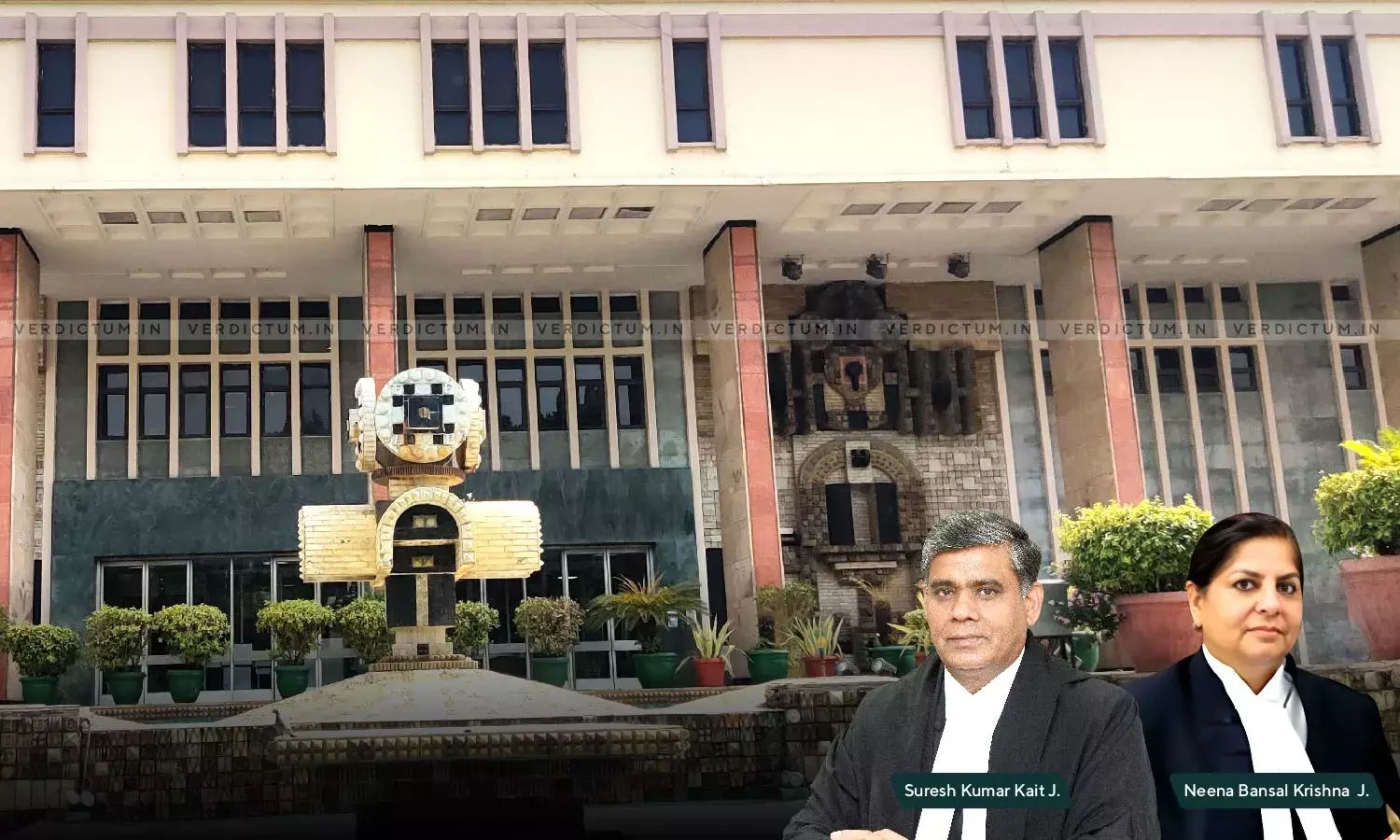"Hyper-Technical, Pedantic & Contradictory Interpretation Of Advertisement"- Delhi HC While Ordering State To Reconsider Candidature

A Delhi High Court Bench of Justice Neena Bansal Krishna and Justice Suresh Kumar Kait has held that an interpretation adopted by the State towards an advertisement for the post of Constable/DCPO was hyper-technical, pedantic, and contradictory.
Ordering the State to reconsider the candidature of the petitioner, the Court observed that "The conjunction “or” between the two categories unambiguously leads to only one interpretation that the license should have been valid for Transport or HTV in the alternative. It cannot now be contended that the Transport Vehicle should have also been valid for Heavy Transport Vehicle."
Counsel Ankur Chhibber appeared for the Appellant, while CGSC Harish Vaidyanathan Shankar, among others, appeared for the Union of India.
In this case, a petition under Article 226 of the Indian Constitution was preferred for the issuance of the Writ of Certiorari, for quashing an order by which the selection of the petitioner for the post of Constable/DCPO had been canceled, and for the issuance of the Writ of Mandamus for directing the respondents to treat the Driving License of the petitioner as valid and issue the appointment Letter and permit him to join the training along with other candidates with all consequential benefits.
The controversy in the case was whether the petitioner had the requisite Driving License for the LMV/Transport Vehicle or Heavy Motor Vehicle on the closing date as per the advertisement issued by the respondents. The respondents contended that although the petitioner had a Transport License, it did not include Heavy Motor Vehicle, and thus, the petitioner was not qualified for the post.
It was noted by the Court that there was no denial or challenge that the driving license of the petitioner was valid for Light Motor Vehicle/Motor Cycle with Gear.
The Court referred to the definitions under the Motor Vehicle Act, 1988, and concluded that "it is evident that Heavy Transport Vehicle, Medium Transport Vehicle and Light Transport Vehicle, all come within the umbrella of Transport Vehicle."
In light of the same, the Court observed that "The advertisement provided for “Heavy Motor Vehicle or Transport Vehicle” i.e. the candidate should be holding either a Heavy Motor or a Transport Vehicle license. Undeniably, the category of Heavy Motor Vehicle as Transport Vehicle is different as has also been submitted by the respondent, but the advertisement only specified for a driving license for Transport Vehicle or heavy motor vehicle. It nowhere stated that the candidate was required to have a driving license for HTV as well as for Transport Vehicle. Once the advertisement clearly stipulated that the petitioner must have a valid Transport License or Heavy Motor Vehicle, it cannot be now contended by the respondents that the transport license should have also been valid for Heavy Motor Vehicle. The conjunction “or” between the two categories unambiguously leads to only one interpretation that the license should have been valid for Transport or HTV in the alternative. It cannot now be contended that the Transport Vehicle should have also been valid for Heavy Transport Vehicle."
Observing that the approach adopted by the respondents was hyper-technical, pedantic, and contrary to their own advertisement, the Court directed the respondents to reconsider the candidature of the petitioner.
Cause Title: Yogendra Kumar Yadav v. Union of India (NEUTRAL CITATION NO: 2023/DHC/001059)
Click here to read/download the Judgment

